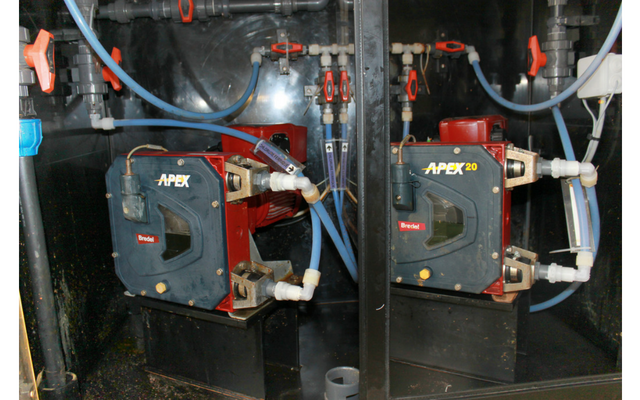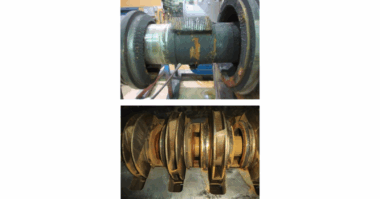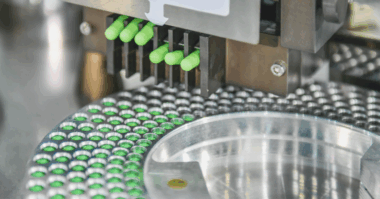Bredel APEX 20 peristaltic pumps from Watson-Marlow Fluid Technology Group (WMFTG) have replaced piston pumps at a water treatment plant in Limoges, France. The move away from piston pumps – which are prone to abrasive wear and clogging – has resulted in significant process improvements. This includes reduced maintenance time, improved reliability and reduced the need to purchase supporting valves.
Established in 1967 and modernised in 1998, the plant supplies 10.5 million m³ of drinking water each year to the city’s 200,000 inhabitants. The plant uses traditional physico-chemical processes, which means that in order to produce clean water for drinking, reagents such as ferric chloride, an inorganic iron-based coagulant, must be injected. It is at this stage that the deployment of the correct dosing pumps is vital.
The treatment phases at the Limoges plant are of a naturally gravity-fed type. As a result, the dosing pumps must take control and be impervious to the effects of gravity. There can be no siphoning of lines, or pump blockages, as the chemical overshoot that results could be extremely expensive.
Diaphragm metering pumps deteriorate fast
“We had been using piston dosing pumps, but found that these are subject to abrasive wear by the coagulant,” says the manager of the Limoges drinking water treatment plant. “Consequently we had to use non-return valves. Unfortunately however, the product was crystallising in the pump, and the valves became clogged. The impact of this was a build-up of deposits that form in the pipelines and increase the pressure.”
The valves which were supposed to guard against the effects of siphoning, ended up becoming stuck in the closed position and sometimes in the open position, thus demanding excessive maintenance and supervision time.
Maintenance time reduced
To resolve these problems, the plant researched pumps that were able to ensure the reliability and safety of both the process and of the maintenance staff. The facility needed to move from conventional technology (diaphragm metering pumps) to peristaltic technology in order to reduce maintenance and plant management time. Moreover, when handling abrasive coagulants such as ferric chloride, peristaltic pumps prove to be an obvious choice.
“I remember our previous very positive tests on precise milk of lime dosing using Watson-Marlow pumps, and, together with their technicians, we conducted several months of testing with Bredel APEX 20 hose pumps for flocculants,” says the manager. “We opened our new plant equipped with 12 APEX pumps.”
Reliability improved
There are no longer any problems with pump reliability and dosing accuracy, or with blocked pipelines and ruptures. Additionally all the valves in the system have been eliminated, further decreasing plant downtime and running costs at Limoges water treatment plant.
This outcome has provided convenience and peace of mind and the only upkeep required is half a day of preventive maintenance, which is scheduled once a quarter.
Fully convinced by peristaltic technology, the team at Limoges wishes to solely use peristaltic pumps for the dosing of other reagents like caustic soda (for pH regulation), polyamine and sodium bisulphite. In addition, tests are planned with Watson-Marlow Qdos 30 dosing pumps for the transfer of bleach.
“We are very happy with the service received from Watson-Marlow Fluid Technology Group, which is important for a 24-7 entity like ours,” concludes the manager. “Furthermore, Watson-Marlow technicians are not only available, they respond well and immediately offer solutions to problems.”




